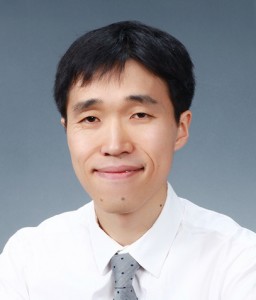Speaker: Pan-Jun Kim, Leader of the Junior Research Group at the Asia Pacific Center for Theoretical Physics
Title: I Am My Genes, Wire, and Microbes
Date: 03/09/2016
Time: 1:00pm
Room: Informatics East 122
Abstract: A primary challenge in biology is to explain how complex phenotypes arise from individual molecules encoded in genes. Molecular interaction networks offer a key to understand how genotypes are translated into phenotypes. For example, sleep/wake cycles in animals are generated by molecular circuits of interacting genes and gene products, called circadian clocks. Circadian clocks are important for plant life as well, and surprisingly, the plant clock circuitry is overwhelmingly composed of inhibitory, rather than activating, interactions between genes. We found that this unique structure facilitates the coordination of temporally-distant clock events that are sharply peaked at very specific times of day, suggesting a design principle of the plant clock machinery. However, considering only genes in a given organism and its own molecular interaction networks may not be enough to understand the holistic picture of the organism’s phenotypes. For example, our resident gut microbial community, or gut microbiome, provides us with a variety of biochemical capabilities not encoded in our genes. This human gut microbiome is linked not only to our health, but also to various disorders such as obesity, cancer, and diabetes. We constructed the first literature-curated global interaction network of the human gut microbiome mediated by various chemicals. Using our network, we conducted a systematic analysis of the microbiomes in type 2 diabetes patients, and revealed the fundamental metabolic infrastructure of the entire gut ecosystem contributing to the pathology of type 2 diabetes. Our network framework shows promise for investigating complex microbe-microbe and host-microbe chemical cross-talk, and identifying disease-associated features.
Bio: Pan-Jun Kim is a Leader of the Junior Research Group at the Asia Pacific Center for Theoretical Physics (APCTP) and an Adjunct Professor in the Department of Physics at Pohang University of Science and Technology (POSTECH). He is enthusiastic about raising a broad range of scientific questions to tackle the complexity behind nature and society, and applies mathematical and computational methods to answer those questions. His recent work covers a new framework to explore the human body’s microbial ecosystem linked to our health and disease, a design principle of biological clockwork for circadian rhythms, technology evolution in society, and even nutritional structure of various foods. Kim received the Young Physicist Award from the Korean Physical Society, and worked as an Institute for Genomic Biology Fellow at the University of Illinois at Urbana-Champaign after earning his PhD in Statistical Physics from KAIST in 2008.
